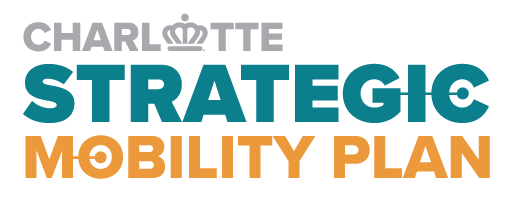Charlotte Future

Safety. Connectivity. Upward Mobility.

Charlotte is the 15th largest city in the United States, and we're ranked as the 7th fastest-growing large metro area. We have to be smart, proactive and sustainable to develop a city where everyone can thrive. The city has been hard at work to bring strategic plans to life to support these efforts and fulfill the mission of ensuring the delivery of exceptional public services that promote safety, health and quality of life.
The Community Area Planning (CAP) will provide neighborhood-level recommendations for the built environment including Place Types, which addresses land use & design, transportation, and infrastructure.
This project will aim to produce 14 plan documents that include recommendations for infrastructure projects, supportive programs, and revisions to Place Type designations on the 2040 Policy Map.
Additional information on CAP can soon be found on Charlotte Future 2040

Adopted in June 2022, the Strategic Mobility Plan (SMP) establishes the City's vision for safe and equitable mobility. The SMP is an important next step in realizing the goals of the Charlotte Future 2040 Comprehensive Plan and is built on public engagement and planning efforts across our diverse neighborhoods and communities. By continuing our commitment to Vision Zero, Charlotte's initiative to eliminate fatal and severe injuries crashes, and establishing a 50-50 mode share goal, the SMP guides Charlotte towards being a community that provides safe and equitable mobility for all travelers.. Additional information on the Strategic Mobility Plan and implementation.
City departments are currently engaging Charlotte residents through the Community Area Planning (CAP) process, which provides an opportunity to further implement the SMP and create a framework for identifying potential projects that support both regional and local mobility investments. More information about Community Area Planning.

The 2030 Transit Corridor System Plan is a long-range plan that integrates some of Charlotte’s most important future transit projects into one cohesive plan. Focuses of the plan include multiple rapid transit improvements in five corridors, a series of Center City improvements, and bus service and facility improvements throughout the region.
Integrated land-use planning and transit-oriented development (TOD) are the cornerstones of the 2030 Transit Corridor System Plan and a key step in moving the region forward. Successful TOD results in pedestrian-friendly environments near rapid transit stations that connect Charlotte’s residents to employment, residential, and retail opportunities. The goal is to make strategic land-use decisions to inspire residents to use transit as an alternative for their everyday travel, creating a sense of community and supporting a better live, work and play lifestyle.

The Office of Sustainability and Resilience advances actions in the areas of clean energy generation, sustainable transportation, building infrastructure, and workforce development to help us move toward our collective mission: Charlotte will lead as a global city by continuously improving, protecting, and preserving the environment, its community, and economy, while ensuring equity and resilience - for todays and future generations. For more information, please visit City of Charlotte - Sustainability.
Guiding this work is the Sustainable and Resilient Charlotte by 2050 City Council Resolution. This resolution sets ambitious municipal and community-wide greenhouse gas (GHG) emissions reduction goals for Charlotte. Specifically, it strives to have city fleet and facilities be fueled 100% by zero-carbon city by 2050 by reducing GHG emissions to less than two tons of carbon dioxide equivalent per person, annually. The Strategic Energy Action Plan (SEAP) is the body of work that directs this impactful effort and is currently in an update process. For more information, please sign up for our newsletter.

The CIP is a long-range investment program designed to meet the needs of our growing community. Using creative approaches and community input to develop projects that move Charlotte forward, the Capital Investment Plan focuses on addressing our community’s infrastructure needs.
The Citywide Projects Portal is a central location for bond-funded projects managed by departments across the city, including General Services, Charlotte-Mecklenburg Storm Water Services, Charlotte Water, Charlotte Department of Transportation and other programs made possible by the CIP. The portal also contains the Capital Projects Dashboard, and interactive data and map tool to help you locate and learn more about capital projects throughout the community.